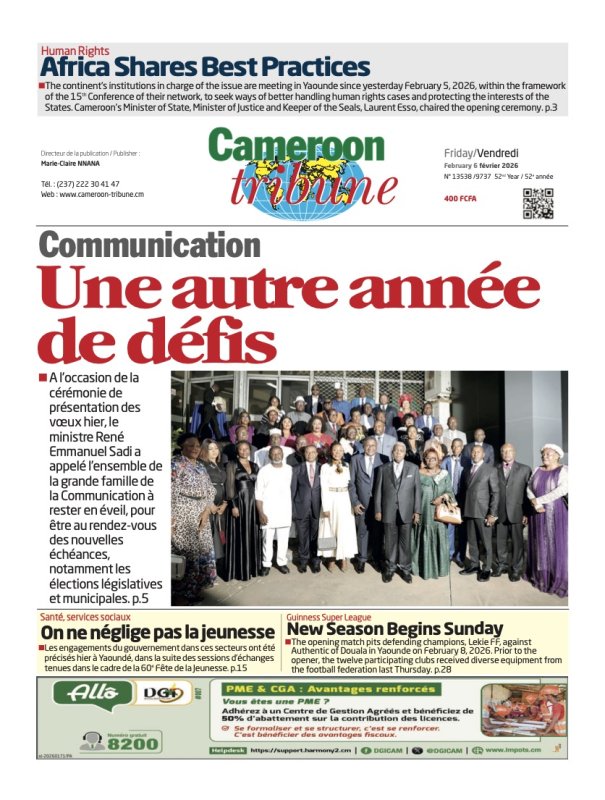Preserving Existing Customs
- Par Eulalia AMABO
- 21 Dec 2022 11:04
- 0 Likes
The customs and traditions of a people give identity to their existence. It portrays the uniqueness of the locality and adds to the diversity Cameroon prides itself of. For these customs and traditions to be preserved, their leaders, or better still, choice of leadership needs to be respected. That said, traditional rulers who govern the people need to be designated as customs demand. As auxiliaries of administration, the law accompanies the designation process to ensure clarity.
Cameroon is a State of law with existing legal dispositions that govern the organisation of traditional chiefdoms (July 15, 1977 Decree). Chapter II, of article 15, specifies the mode of designation of traditional chiefs, taking into consideration hereditary and election mechanisms. Chiefs are divided into first, second and third classes with the functions and benefits of each well outlined. The bone of contention remains the succession process when a traditional ruler journeys beyond and the need to preserve the cultural identify of various communities.
Greed and personal interest have taken centre stage, leading to alterations in the designation of the next of kin. Several villages have been created which ought not to exist and the national flag sometimes hoisted in disputed compounds. Chieftaincy titles have been disputed with the administration having to intervene to bring in law and order. Placed under the authority of the Ministry of Territorial Administration, Article 19 of the aforementioned decree states that “the traditional chiefs have the role of assisting the administrative authorities in their task of supervising the population.” How then do you supervise the population when the “pa...
Cet article complet est réservé aux abonnés
Déjà abonné ? Identifiez-vous >
Accédez en illimité à Cameroon Tribune Digital à partir de 26250 FCFA
Je M'abonne1 minute suffit pour vous abonner à Cameroon Tribune Digital !
- Votre numéro spécial cameroon-tribune en version numérique
- Des encarts
- Des appels d'offres exclusives
- D'avant-première (accès 24h avant la publication)
- Des éditions consultables sur tous supports (smartphone, tablettes, PC)












Commentaires